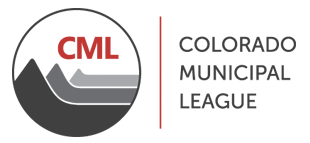University of Colorado Board of Regents violated CORA by Withholding Five Interviewees’ Application Materials from the Boulder Daily Camera
In This Section
By Ellie LeBuhn, Law Clerk
University of Colorado Board of Regents violated CORA by Withholding Five Interviewees’ Application Materials from the Boulder Daily Camera
A March 6 ruling out of the Denver District Court found that the University of Colorado Board of Regents violated the Colorado Open Records Act (CORA) and Open Meetings Law (OML) when it disclosed only one name and withheld five others from a Boulder Daily Camera CORA request. In the University of Colorado’s 2019 search for a new President, the Board of Regents announced one name—Mark Kennedy—as its sole finalist, although the Regents interviewed six candidates total out of a broader pool of applicants identified by an executive search firm. CORA and OML require all public bodies in the state to announce the “finalists” when filling an “executive position.”
The Court turned to statutory interpretation and the plain and ordinary meaning of the statutes to find that “the legislature plainly expressed its intent that the names and records of more than one ‘finalist’ be disclosed.” As a singular reading of the word “finalists,” as enumerated in CORA § 24-72-204(a)(XI(A), would conflict with the surrounding text, the Court declared that this reading “is not necessary to carry out the evident intent of the statutes.” The Court also dispelled of any notion that the Regents have “unfettered authority to self-define” the parameters of who constitutes a “finalist” to then, in turn, control the narrative of person(s) whom will be publicly disclosed.
A caveat to this order is that the Court agrees with the Board of Regents’ positioning that CORA and OML do not require public entities to always use a formal screening process, or how to go about their business. But, the Court posits, these statutes “do direct public bodies, including the Board of Regents, ‘as to how to’ disclose their business to the public.” This means that CORA and OML do not force municipalities, or other public entities, to always generate a list of finalists during the hiring process. For example, a governing body can still hire from within, or review all submitted applications and subsequently hire one candidate. But, if an entity does winnow the applicant pool down to a group of finalists, it is this subset that will then be subject to disclosure under CORA and OML.
